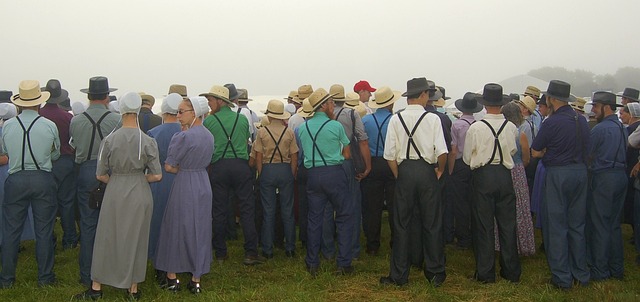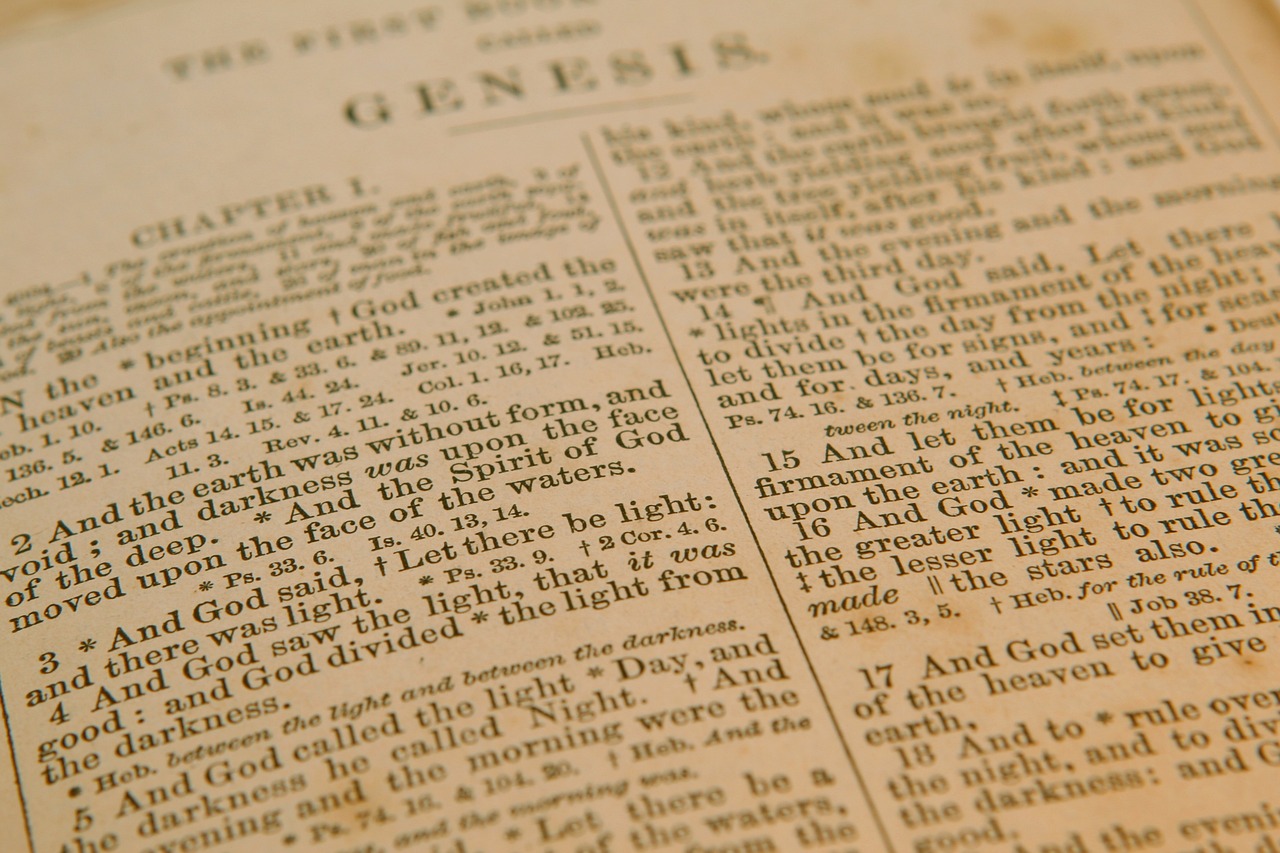The Amish do not cut their hair as it is a religious and cultural practice that stems from their interpretation of biblical teachings and their desire to maintain simplicity and humility in their way of life.
Table of Contents
Religious Beliefs and Traditions Surrounding Hair Length in the Amish Community
Have you ever wondered why the Amish community does not cut their hair? It’s a question that has intrigued many people, and the answer lies in their religious beliefs and traditions. The Amish, known for their simple and traditional way of life, have a deep-rooted connection to their faith, and this extends to their appearance as well.
In the Amish community, hair is seen as a symbol of humility and modesty. It is believed that long hair is a sign of obedience to God and a way to separate themselves from the modern world. The Bible, specifically the book of Corinthians, mentions that a woman’s hair is her glory and should be kept long. This belief is taken quite literally by the Amish, who believe that cutting their hair would be a violation of this biblical command.
For Amish men, the tradition of not cutting their hair is also deeply rooted in their religious beliefs. They believe that long hair is a symbol of masculinity and a way to show respect for God. It is seen as a way to differentiate themselves from the outside world and to maintain their distinct identity as Amish men.
In addition to religious beliefs, the Amish also have practical reasons for not cutting their hair. In their agrarian lifestyle, long hair provides protection from the elements, such as the sun and wind. It acts as a natural shield, keeping their heads warm in the winter and providing shade in the summer. This practical aspect of not cutting their hair aligns with their overall philosophy of simplicity and self-sufficiency.
The Amish community places a strong emphasis on community and conformity. They believe in living a life that is separate from the modern world and its temptations. By adhering to strict rules and traditions, such as not cutting their hair, they are able to maintain a sense of unity and solidarity within their community. It is a way for them to show their commitment to their faith and to each other.
While the Amish community as a whole follows these traditions, it is important to note that there may be variations within different Amish groups. Some communities may have slightly different interpretations of the rules regarding hair length, but the general principle of not cutting their hair remains the same.
In conclusion, the Amish community’s decision to not cut their hair is deeply rooted in their religious beliefs and traditions. It is seen as a way to show obedience to God, maintain their distinct identity, and live a life of simplicity and modesty. By adhering to these traditions, the Amish community is able to maintain a strong sense of unity and solidarity. So, the next time you see an Amish person with long, flowing hair, you’ll know that it is not just a fashion statement, but a reflection of their deeply held beliefs and values.
Symbolism and Significance of Long Hair in Amish Culture

Have you ever wondered why the Amish do not cut their hair? It’s a question that has intrigued many people, and the answer lies in the symbolism and significance of long hair in Amish culture. In this article, we will explore the reasons behind this unique practice and shed light on the cultural beliefs that shape the Amish way of life.
To understand why the Amish choose to keep their hair long, we must first delve into their religious beliefs. The Amish are a deeply religious community that values simplicity and humility. They believe in living a life separate from the modern world, and their appearance reflects this commitment. For the Amish, long hair is seen as a symbol of modesty and a way to differentiate themselves from the outside world.
In Amish culture, women are expected to wear their hair in a bun or a braid, while men are required to grow their beards once they marry. This adherence to traditional hairstyles is rooted in the belief that excessive vanity and pride are sinful. By keeping their hair long and unstyled, the Amish demonstrate their commitment to humility and modesty.
Long hair also holds a deeper spiritual significance for the Amish. It is believed to be a gift from God and a symbol of their faith. The Bible, particularly the New Testament, contains several references to the importance of hair in religious practices. For example, in Corinthians 11:15, it states, “But if a woman has long hair, it is her glory, for her hair is given to her for a covering.” This verse is often cited by the Amish to justify their practice of not cutting their hair.
Furthermore, long hair is seen as a way to connect with their ancestors and maintain a sense of tradition. The Amish place great importance on preserving their cultural heritage and passing it down to future generations. By keeping their hair long, they honor the customs and traditions of their forefathers, reinforcing their sense of identity and belonging.
It is worth noting that not all Amish communities adhere to the same hair practices. Some may allow women to wear their hair loose, while others may require men to wear their beards in a specific style. These variations are influenced by regional customs and individual church rules. However, the underlying principle of long hair as a symbol of modesty and religious devotion remains consistent across all Amish communities.
In conclusion, the Amish do not cut their hair as a way to express their religious beliefs and maintain their cultural identity. Long hair is seen as a symbol of modesty, humility, and a connection to their faith and ancestors. By adhering to this practice, the Amish demonstrate their commitment to living a simple and separate life from the modern world. So, the next time you see an Amish person with long, uncut hair, remember the deep symbolism and significance it holds for them.
Historical Origins and Cultural Influences on Amish Hair Practices
Have you ever wondered why the Amish do not cut their hair? It’s a question that has intrigued many people, and the answer lies in the historical origins and cultural influences on Amish hair practices. The Amish, a religious group known for their simple way of life, have a deep-rooted belief in the importance of humility and modesty. This belief extends to their appearance, including their hair.
To understand why the Amish do not cut their hair, we need to delve into their history. The Amish trace their roots back to the 16th century Anabaptist movement in Europe. During this time, religious persecution was rampant, and the Amish faced intense scrutiny for their beliefs. As a result, they sought to distance themselves from the mainstream society and its fashion trends.
One of the ways the Amish achieved this separation was through their distinctive hairstyles. Men typically grow their beards long and do not trim them, while women wear their hair in a bun or covered with a prayer cap. These practices serve as a visible symbol of their commitment to their faith and their rejection of worldly vanity.
Cultural influences also play a significant role in Amish hair practices. The Amish value community and conformity, and their hairstyles reflect this communal mindset. By adhering to a specific hairstyle, they demonstrate their unity and solidarity as a group. It is a way of visually identifying themselves as Amish and distinguishing themselves from the outside world.
Furthermore, the Amish believe that excessive attention to personal appearance can lead to pride and vanity, which are considered sinful. By not cutting their hair, they avoid the temptation to focus on their physical appearance and instead prioritize their spiritual well-being. This emphasis on inner qualities over outward appearance is a fundamental aspect of Amish culture.
Another cultural influence on Amish hair practices is the belief in simplicity and practicality. The Amish lead a simple lifestyle, devoid of modern conveniences and technology. This simplicity extends to their grooming habits as well. By not cutting their hair, they avoid the need for regular haircuts and the associated time and expense. It is a practical choice that aligns with their overall way of life.
It is important to note that not all Amish communities have the same hair practices. There are variations among different Amish affiliations and even within individual families. Some communities allow men to trim their beards to a certain length, while others may permit women to wear their hair in a different style. These variations are influenced by factors such as regional customs and individual interpretations of Amish beliefs.
In conclusion, the Amish do not cut their hair due to a combination of historical origins and cultural influences. Their distinctive hairstyles serve as a visible symbol of their commitment to their faith, their rejection of worldly vanity, and their unity as a community. By prioritizing humility, simplicity, and practicality, the Amish have created a unique hair practice that sets them apart from the outside world. So, the next time you see an Amish person with long hair or a neatly tied bun, you’ll understand the deeper meaning behind their hairstyle.
Practical Reasons for Amish Hair Length and Maintenance Practices
Have you ever wondered why the Amish don’t cut their hair? It’s a question that has intrigued many people, and the answer lies in the practical reasons behind their hair length and maintenance practices. The Amish, known for their simple and traditional way of life, have specific beliefs and customs that guide their daily routines, including how they care for their hair.
One practical reason for the Amish not cutting their hair is their commitment to simplicity. The Amish believe in living a modest and humble life, free from the distractions of modern society. For them, cutting their hair would be seen as a form of vanity and a departure from their values. By keeping their hair long and uncut, they are able to maintain a sense of simplicity and humility in their appearance.
Another reason for the Amish’s long hair is their adherence to biblical teachings. The Bible, particularly in the New Testament, mentions the importance of women having long hair and men having short hair. The Amish interpret these passages as a commandment to maintain gender distinctions and to avoid any confusion or blurring of gender roles. By keeping their hair long, women are seen as embracing their femininity, while men are seen as upholding their masculinity.
In addition to these cultural and religious reasons, there are also practical considerations for the Amish’s hair length and maintenance practices. The Amish lead a predominantly agricultural lifestyle, spending much of their time working in the fields and tending to their livestock. Long hair can be easily tied back or braided, keeping it out of the way and preventing it from getting caught in machinery or becoming a hindrance during physical labor. It is a practical choice that allows them to work efficiently and safely.
Furthermore, the Amish believe in self-sufficiency and living off the land. They do not rely on modern conveniences such as electricity or running water. This means that they do not have access to hair salons or barbershops like most people do. Cutting their hair would require them to seek outside help, which goes against their self-sufficient way of life. By keeping their hair long, they can maintain their independence and rely on their own resources for their grooming needs.
Maintaining long hair also has its own set of challenges. The Amish take great care in keeping their hair clean and healthy. They wash their hair with homemade, all-natural soaps and avoid using any chemical products. This ensures that their hair remains strong and free from damage. Additionally, they often wear their hair in simple styles, such as braids or buns, which are easy to manage and maintain.
In conclusion, the Amish’s decision to not cut their hair is rooted in a combination of cultural, religious, and practical reasons. By keeping their hair long, they are able to uphold their values of simplicity and humility, while also adhering to biblical teachings. It allows them to work efficiently and safely in their agricultural lifestyle, and it aligns with their self-sufficient way of life. Maintaining long hair also requires them to take care of their grooming needs using natural and homemade products. So, the next time you see an Amish person with long, flowing hair, you’ll know that there’s more to it than meets the eye.
Conclusion
The Amish do not cut their hair as it is a religious and cultural practice that symbolizes humility, simplicity, and separation from the modern world.
For licensing reasons, we must provide the following notice: This content was created in part with the help of an AI.


